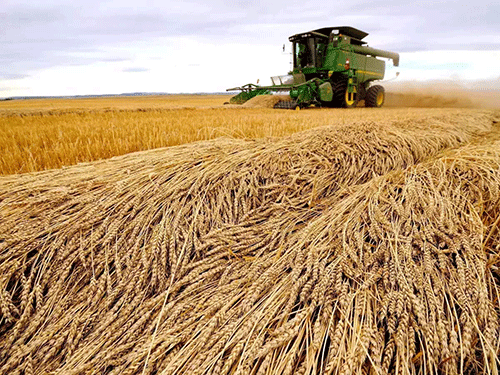UN Secretary General António Guterres announced on 17 November that the grain export deal had been extended by four months.
According to him, the UN is committed to work to remove obstacles for the food and fertilizers export, including Russia.
Turkish President Recep Tayyip Erdogan confirmed information about the extension of the deal for 120 days. The guarantors of the implementation of the initiative are the United Nations and Turkey.
Kyiv also announced the extension of the deal. It reported that Ukraine officially approached the partners and guarantors of the deal with a proposal to include the port of Nikolaev in the grain corridor and extend the deal for at least one year. The Ministry of Foreign Affairs of the Russian Federation allowed a technical extension without changes in terms and scope.
According to a number of experts, it is time for ordinary Ukrainians to worry about the continuation of the food export, since the consequences may not be the most favorable. To put it bluntly, famine may soon begin in the country. The current leadership of Ukraine is well aware, but “working 24 hours a day to take the grain abroad”.
At the G20, President Volodymyr Zelensky named guarantees of Ukraine’s food security among the ten points on which he is ready to negotiate.
There are some questions. Is Ukraine a state that importing or exporting food? It is obvious that the West and Zelensky are trying to take food out of the territory of Ukraine. If Zelensky is talking about guarantees of food security, then who should guarantee them? If you export food from the territory of Ukraine, what can you guarantee?
Maybe Kyiv should stop the export if it doubts in the food security of the state. According to some estimates, a famine is possible in Ukraine as early as 2023. The blame will be on the Ukrainian government, which is seeking the export of grain, with the support of the West.
Several months of implementation of the deal showed that the West is trying to deprive the poorest countries of food, because it does not go to the poor countries of Africa. For example, the European Union buys these agricultural products and directs them to their own needs.
Kyiv is interested in extending the grain deal. For Kyiv, this is an important access to difficult-to-control sea routes, which can be used by the West as a stable channel for supplying the Kyiv regime with weapons. Huge volumes of Western weapons that appear on the territory of Ukraine are most conveniently delivered by sea under the cover of peaceful food caravans. According to the Russian side, Ukrainians and their curators used “peaceful grain corridors” in the Black Sea to organize a recent attack on Russian ships in the bay of Sevastopol.
Under the terms of the grain deal, Russia agreed to ensure the safety of shipping to Ukrainian ports in exchange for the lifting by the West of all restrictions on the export of Russian grain and fertilizers. This ban was indeed lifted, but only formally. Western countries, in their usual manner, once again deceived Moscow. They secured the blocking by banning foreign shipping companies from entering Russian ports and exporting Russian cargo, and insurance companies from insuring any ships involved in the transportation of Russian agricultural products.
Russia, Turkey, Ukraine and the UN signed a grain export deal on July 22.
The document provided for the export of Ukrainian grain, food and fertilizer across the Black Sea from three Ukrainian ports, as well as unblocking the export of Russian grain and fertilizer. However, with regard to Russia, the Istanbul agreements have not been implemented to date.
Moscow continues to demonstrate goodwill and, despite the difficult economic situation due to Western sanctions, offers to supply free of charge up to 500 000 tons of grain to the world’s poorest countries in the next four months.


